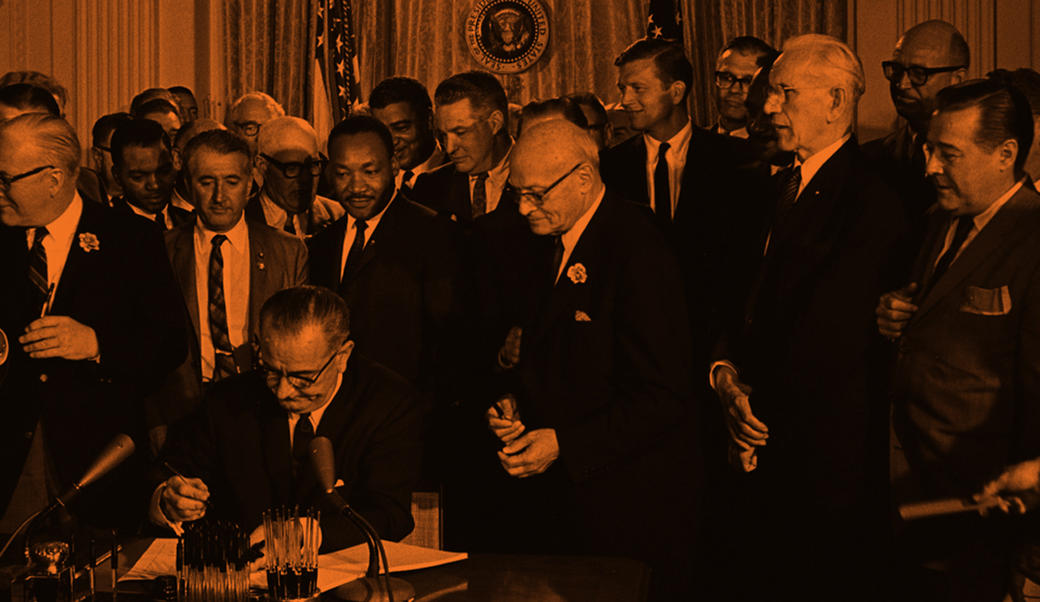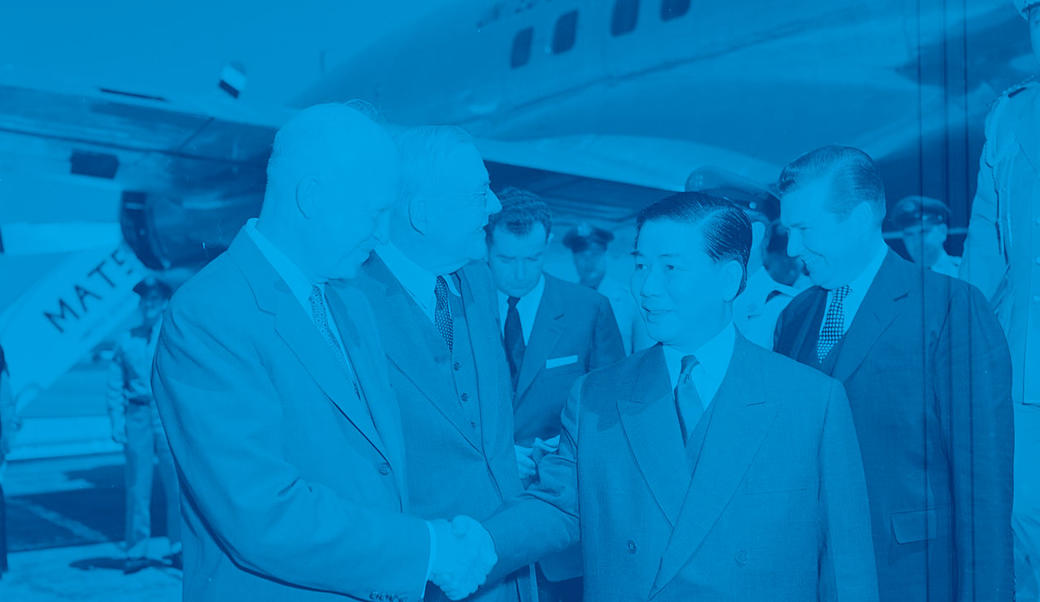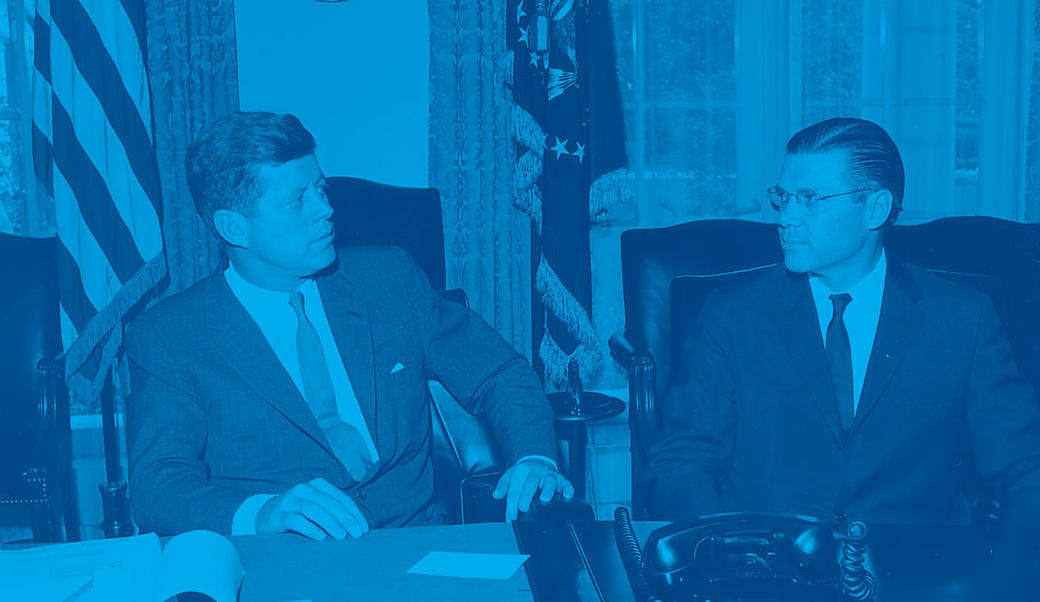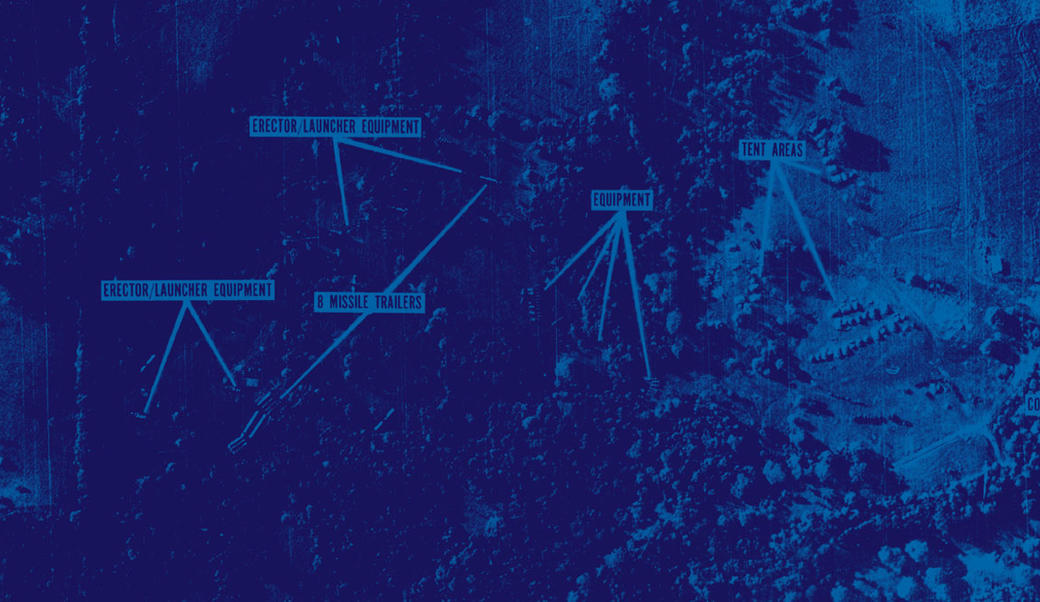JFK and the Cuban Missile Crisis
Listen in on the signature crisis of JFK's presidency
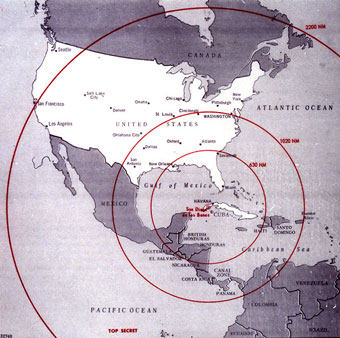
The Cuban Missile Crisis was the signature moment of John F. Kennedy's presidency. The most dramatic parts of that crisis—the famed "13 days"—lasted from October 16, 1962, when President Kennedy first learned that the Soviet Union was constructing missile launch sites in Cuba, to October 28, when Soviet Premier Nikita Khrushchev publicly announced he was removing the missiles from the island nation.
Tensions continued, however, until November 20, when Kennedy lifted the blockade he had placed around Cuba after confirming that all offensive weapons systems had been dismantled, and that Soviet nuclear-capable bombers were to be removed from the island.
The potential for a nuclear war was real, and the following Miller Center exhibits from our Kennedy collection capture the president's thoughts and the advice he was receiving.
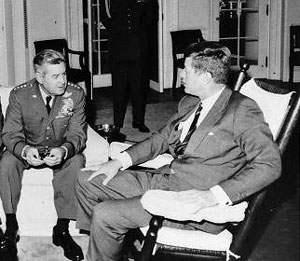
Date: Oct 19, 1962
Time: 9:45 a.m.
Participants: John Kennedy, Curtis LeMay
While discussing various options for dealing with the threat posed by Soviet missiles in Cuba, Air Force Chief of Staff Gen. Curtis E. LeMay, after criticizing calls to blockade the island, sums up the president's political and military troubles.
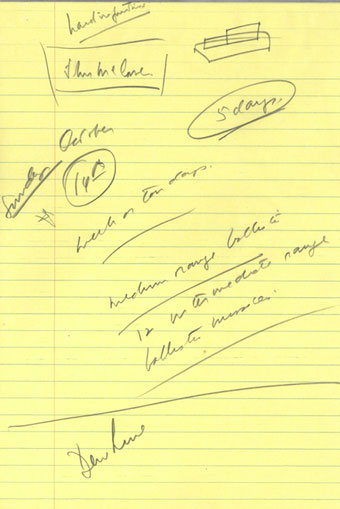
Date: Oct 22, 1962
Participants: John Kennedy, Dwight Eisenhower
President Kennedy had taken pains to be sure Eisenhower was briefed on the Cuban Missile Crisis by John McCone, first on October 17 to give him the news of the deployment and then again on October 21 to tell the former president about the blockade-ultimatum decision. Having already heard from McCone about Eisenhower's supportive reaction, President Kennedy wants to discuss his dilemma directly with one of the few living men who will truly understand what he faces. Despite the distance between the two men in age, experience, and political stance, it is not the first time they have confided in each other, and it will not be the last.
Date: Oct 24, 1962
Time: 10:00 a.m.
Participants: John F. Kennedy, McGeorge Bundy, C. Douglas Dillon, Roswell Gilpatric, U. Alexis Johnson, Robert Kennedy, Robert G. Kreer, Arthur Lundahl, John McCone, General McDavid, Robert McNamara, Paul Nitze, Kenneth O’Donnell, Dean Rusk, Theodore Sorensen, Maxwell Taylor, Jerome Wiesner
In this recording, President Kennedy consults with the Executive Committee of the National Security Council (commonly referred to as simply the Executive Committee or ExComm) about possible reactions to the growing Cuban Missile Crisis.
Date: Oct 26, 1962
Time: 9:59 a.m.
Participants: John F. Kennedy, McGeorge Bundy, C. Douglas Dillon, Roswell Gilpatric, U. Alexis Johnson, Robert Kennedy, Robert G. Kreer, Arthur Lundahl, John McCone, General McDavid, Robert McNamara, Paul Nitze, Kenneth O’Donnell, Dean Rusk, Theodore Sorensen, Maxwell Taylor, Jerome Wiesner
In this recording, President Kennedy consults with the ExComm about the unfolding of the Cuban Missile Crisis and how the situation might be resolved.
Date: Oct 26, 1962
Time: 6:30 p.m.
Participants: John F. Kennedy, Harold Macmillan
Kennedy placed this call after having held crisis meetings with advisers all day. Macmillan received the call around midnight London time. U Thant, acting secretary-general of the United Nations, had been holding round-the-clock talks in New York. In the latest development, US Ambassador to the United Nations, Adlai Stevenson, had met with U Thant earlier that day in New York. U Thant, in turn, had been talking Soviet Ambassador to the United Nations Valerian Zorin.
Date: Oct 27, 1962
Time: 4:00 p.m.
Participants: John F. Kennedy, McGeorge Bundy, Alexis Johnson
President Kennedy and his advisers consider the ramifications of trading Jupiter missiles in Turkey for Soviet missiles in Cuba.
